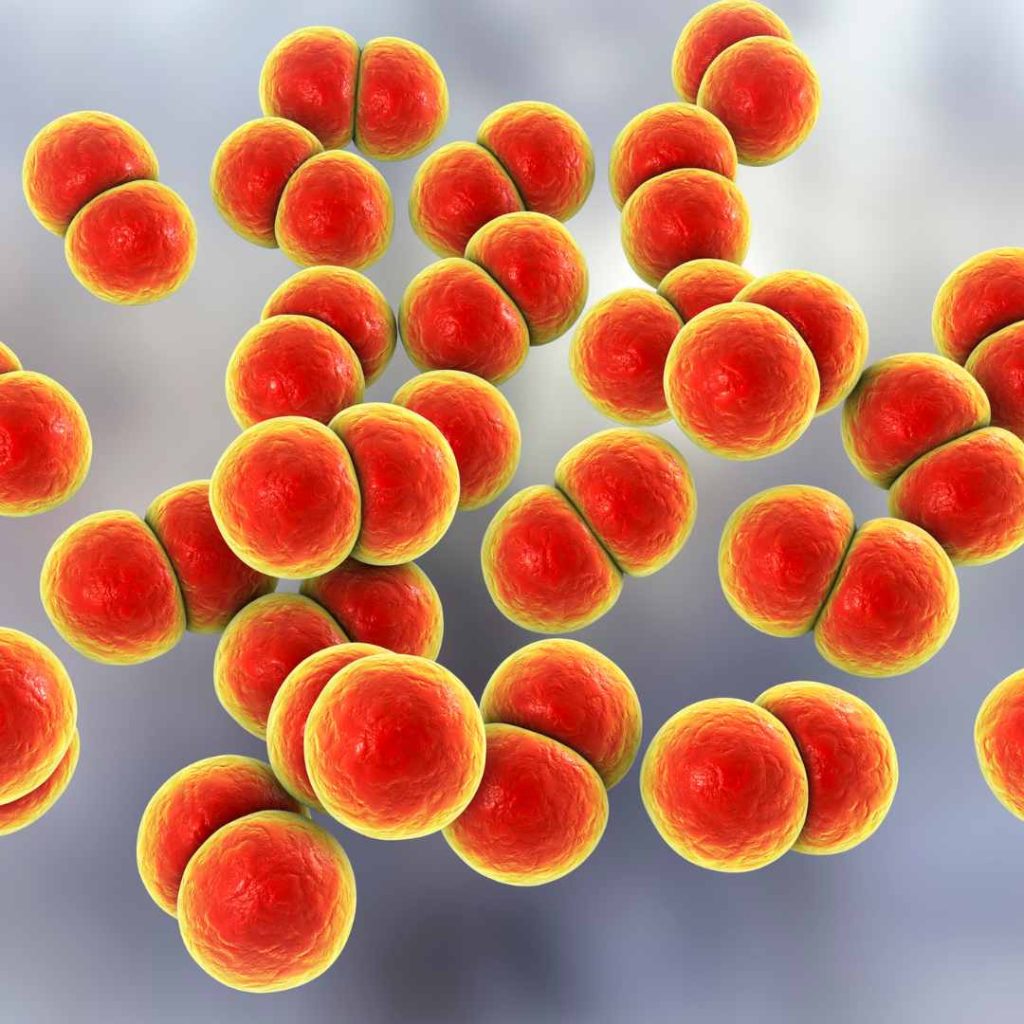Vaginal Microbiota And Fertility Understanding Antibiotics Impact

Having difficulty conceiving can be a challenging experience for many individuals and couples. It is an incredibly complex process that can be impacted by a range of factors. One of the most significant elements to consider is the vaginal microbiota, which can be greatly affected by the use of antibiotics. This article will explore the impact of antibiotics on vaginal microbiota and fertility, as well as ways to understand and mitigate the risks associated with their use. By better understanding the effects of antibiotics, we can ensure that individuals and couples have the best chance of successfully conceiving.
What are Antibiotics?
Antibiotics are a type of medication commonly used to treat bacterial infections. They are extremely effective at killing bacteria, but they can also have a detrimental effect on the delicate balance of bacteria in the vagina.
This balance is known as the vaginal microbiota and is essential for fertility.

Studies have shown that antibiotics can reduce the number of beneficial bacteria in the vagina, leading to an increase in pathogenic bacteria. This can lead to bacterial vaginosis (BV) which is a condition that can reduce the chances of conceiving.
In light of this, it is important to be aware of the risks of taking antibiotics and to only use them when absolutely necessary. It is also important to take a probiotic supplement while taking antibiotics, as this can help to restore beneficial bacteria in the vagina.

According to Healthline, it is recommended to take a probiotic with at least 10 billion colony-forming units (CFU) of lactobacillus species. This is the most common type of probiotic found in the vagina. It is also recommended to take the probiotic for at least two weeks after finishing the course of antibiotics.
By understanding the effects of antibiotics on the vaginal microbiota, we can better protect our fertility. It is important to be aware of the risks when taking antibiotics and to take the necessary steps to restore beneficial bacteria in the vagina.
Vaginal Microbiota and Fertility
The vaginal microbiota is an important factor when it comes to fertility and reproductive health. Several studies have revealed that a healthy and balanced vaginal microbiome is associated with enhanced fertility and better reproductive health in women. It helps to maintain a normal pH level and prevent infections from developing. Additionally, certain bacteria present in the vaginal microbiome play an important role in supporting embryo implantation and fertility.

Unfortunately, antibiotics can disrupt the vaginal microbiome, leading to a decrease in healthy bacteria and an increase in unhealthy bacteria. This can lead to an increase in vaginal and urinary tract infections, which can have a negative impact on fertility. Additionally, antibiotics may decrease the immune system’s ability to fight against infections, leading to further complications.
Fortunately, there are ways to counteract the effects of antibiotics on the vaginal microbiome. Studies suggest that probiotics can help to restore the balance of bacteria in the vagina, reduce the risk of infection, and improve fertility. Additionally, consuming foods high in probiotics, such as yogurt, cheese, and kimchi, can also have a positive impact on vaginal microbiota and fertility.
Lastly, regular visits to the gynecologist to keep track of the vaginal microbiome’s health is essential. According to the Centers for Disease Control and Prevention, 5 million people in the United States depend on fertility treatments each year, and understanding the impact of antibiotics on the vaginal microbiome is crucial for successful fertility outcomes.
By understanding the impact of antibiotics on vaginal microbiota and fertility, women can make informed decisions about their reproductive health and take preventive steps to ensure
Changes to Microbiota Structure
Vaginal microbiota plays an important role in fertility, and the effects of antibiotics on the microbial diversity of this environment are becoming increasingly clear. A recent study showed that antibiotic exposure can potentially lead to a decrease in diversity and an increase in the prevalence of certain bacterial species, which can impact fertility.
This shift in the structure of the vaginal microbiota can potentially lead to an increase in the risk of preterm birth, as well as infertility. It is important to note that not all antibiotics are created equal, and the effects of certain antibiotics on the microbiota are more drastic than others.
Moreover, the effects of antibiotics on fertility cannot be strictly attributed to a decrease in microbial diversity. It is possible that certain antibiotics can also have an effect on the hormones related to fertility, such as estrogen and progesterone.
It is essential for women to talk to their healthcare providers to understand the potential risks and benefits of taking antibiotics before getting pregnant. Additionally, taking probiotics before and after taking antibiotics can help to restore the balance of the vaginal microbiota.
Overall, it is important to understand the effects of antibiotics on vaginal microbiota and fertility, so that women can make informed decisions about their health. Resources such as the Centers for Disease Control and Prevention (CDC) can provide important information about the use of antibiotics during pregnancy.
Antibiotic Impact on Fertility
Vaginal microbiota plays a key role in fertility, with the presence of certain microbes having a positive impact on reproductive health. Antibiotics can disrupt the delicate balance of the vaginal microbiome, and this can have a profoundly negative effect on fertility. A recent study published in the journal Human Reproductive Update found that antibiotics can reduce fertility by interfering with the regular menstrual cycle.
Recent research also suggests that antibiotics can reduce the effectiveness of fertility treatments. One study looked at the impact of antibiotics on in-vitro fertilization (IVF) and found that the success rate of IVF procedures decreased by 17% when antibiotics were used before the procedure. Furthermore, the use of antibiotics during insemination can reduce the chance of successful conception by up to 50%.
The best way to protect reproductive health and ensure fertility is to avoid taking antibiotics, unless absolutely necessary. If antibiotics are required, it is important to follow the instructions of the doctor carefully. Additionally, using probiotics may help to restore the balance of the vaginal microbiome after a course of antibiotics.
While antibiotics can be extremely important for treating infections, it is important to be aware of the potential impact on fertility. Considering the findings of recent studies, it is essential to understand how antibiotics can affect reproductive health when making decisions about their use.
Common Antibiotic Types
The link between vaginal microbiota and fertility is an increasingly important topic in reproductive health. Antibiotics are often prescribed as a means of treating bacterial infections, but it is important to understand the potential impact they may have on fertility. Some common antibiotics that may affect reproductive health include tetracyclines, macrolides, quinolones, and aminoglycosides.
Tetracyclines are a group of antibiotics commonly used to treat a variety of infections. Studies have found that the use of tetracyclines, specifically doxycycline, can affect vaginal microbiota and potentially lead to reproductive complications. Macrolides, such as azithromycin, are another common antibiotic prescribed for bacterial and some viral infections. While still being studied, macrolides may affect levels of Lactobacillus, an important bacteria for maintaining pH balance in the vagina, leading to a higher risk of preterm birth.
Quinolones, such as ciprofloxacin, are a type of antibiotic often used to treat urinary tract and other bacterial infections. However, this type of antibiotic has been found to correlate with the depletion of beneficial bacteria in the vagina, as well as a decrease in cervical fluid and sperm motility. Aminoglycosides, such as gentamicin, are another type of antibiotic used to treat serious bacterial infections. While rarer than other antibiotics, it has been linked to decreased fertility due to its effects on the microbiome of the reproductive system.
Alternative Treatments
Vaginal microbiota plays an important role in reproductive health and fertility. Antibiotics can disrupt the natural balance of bacteria in the vagina and can negatively impact fertility. While antibiotics may be necessary for treating infections, alternative treatments should be considered before taking antibiotics to preserve the balance of vaginal microbiota. Complementary treatments, such as probiotics and prebiotics, can help to restore the balance of bacteria and potentially improve fertility. According to a study published in Frontiers in Cellular and Infection Microbiology, probiotics are “particularly effective in the treatment and prevention of vaginal infections.” Additionally, research published in the journal BMC Women’s Health states that prebiotics “can be beneficial for improving fertility, as well as for other health and wellbeing outcomes.” These treatments can help to improve fertility without the use of antibiotics.
Preventative Measures
Vaginal microbiota plays an integral role in regulating human fertility. Antibiotic use can disrupt the delicate balance of the vaginal microbiome, leading to reproductive problems in women. Research has shown that antibiotic use may reduce fecundity, which is the ability to conceive a child. This can be especially concerning for couples who are trying to conceive, as antibiotics can prevent successful fertilization.
To protect the vaginal microbiome and ensure fertility, it is important to use antibiotics only when absolutely necessary. Taking preventative measures such as limiting exposure to chemicals and eating a healthy diet can help reduce the need for antibiotics. Additionally, it is important to talk to a doctor about any antibiotics prescribed and their potential effects on the vaginal microbiome.
The World Health Organization reports that antibiotics are the most commonly prescribed drugs in the world, and yet they are often overprescribed or misused. Rather than relying on antibiotics for minor conditions, taking proactive steps to maintain vaginal health is the best way to ensure fertility. Studies have shown that women with higher concentrations of certain vaginal bacteria are up to 50% more likely to become pregnant.
It is essential to be proactive about maintaining vaginal health and understanding the impact of antibiotic use. Consulting a doctor and taking preventative measures can help minimize the risk of fertility issues caused by vaginal microbiome disruption. Although antibiotics can be a necessary resource, it is important to understand their effects on the body and use them responsibly.
Conclusion
understanding the impact antibiotics have on vaginal microbiota is essential to understanding fertility outcomes. For those who are trying to conceive, it is important to take the time to learn about best practices for taking antibiotics, as well as other approaches that can help maintain a healthy balance of vaginal microbiota. Additionally, it is essential to be mindful of potential side effects and to always speak with a healthcare professional before taking any antibiotics. I hope this article has provided you with a better understanding of the impact of antibiotics on vaginal microbiota and fertility. Going forward, it is important to be an advocate for your own health and to be aware of the potential implications of antibiotic use. Take the time to do your research and make educated decisions that will benefit your health in the long run.